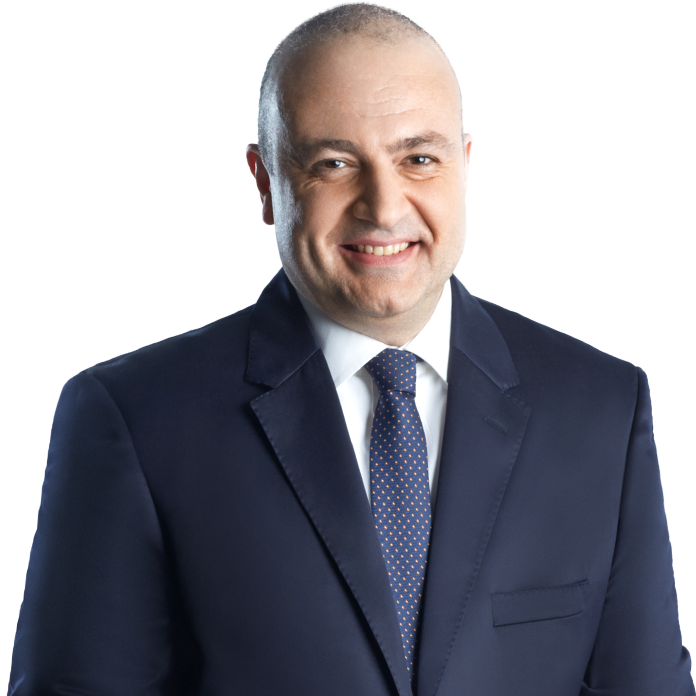U.S. Chief of Staff Gen. Mark Milley’s first visit to northern Syria and meeting with its ally, the Kurdistan Workers’ Party (PKK)/People’s Protection Units (YPG) at the U.S. base is a noteworthy event.
Our NATO ally’s highest ranking officer meets under the earthquake zone with our arch enemy, terrorist organizations, and renews their deal against Daesh, another terrorist organization – thatis of course, if you look at the surface only.
Türkiye knows what the visit signifies. When we call the U.S. ambassador to the Foreign Ministry, we want to see how he will twist it around when we ask him to explain. This is more of a, “We are following you, we know what you are doing, our eyes are on you” protocol.
Everyone is already aware of the American presence in the region. The U.S. army’s central forces, CENTCOM, protects and supports this. But why is it showing itself at this level now? Since the Daesh excuse is a lie, why would it support the PKK at such a high level? Why make a bigger appearance in Syria?
The commander of the U.S. army, who has devoted his time to Russia and China, the clear parties inolved in the global war’s central country, Ukraine, visits to see a unit of 900 people!
THEY WENT MAD ABOUT ANKARA-DAMASCUS NORMALIZATION IDEA, IRAN’S ROLE
Milley was in Tel Aviv before crossing through to Syria. He met with the Israeli defense minister and chief of staff. Neither party made satisfying statements about what was discussed, butwe do know that Iran was the first item on the table – because they said it themselves.
News reports that “Iran may produce a nuclear bomb in 12 days,” demonstrations inside the counry, the poisoning of 2,000 female students in schools, the claim thatTehran is Al Qaida’s new center are among the most obvious examples showing the U.S. and Israel’s sensitivities towards Iran increased in recent months beyond their general political discourses, with the nuclear fear re-sparked.
These are the outputs. There are also inputs. “Outside facts,” in other words, Iran-Russia relations achieved a higher strategic rank, whether this tranlated into an “arms exchange/support” specific to Ukraine, Azerbaijan-Armenia-Iran relations, China-Iran relations, addng “plus” to the Astana format and writing “Syria” beside it, inviting Tehran which gave it a role in the normalization between Ankara and Damascus, signing a military cooperation deal exclusively with Damascus, and Israel freely installing air defense systes/missiles in the region it struck until now.
Syria’s normalization process with Türkiye, Egypt, the United Arab Emirates (UAE), Qatar, and Saudi Arabia, the fact that Russia-China and Iran are protecting this pushes the U.S. towards the corner.
For the sake of reminding China’s position on Syria: the Beijing administration recently harshly accused the U.S. of “banditry” in Syria. It described the U.S. presence in the country as unstabilizing the country and sabotaging the political solution and claimed that the U.S. is immoral and hypocritical.
The U.S. chief of staff’s Syria visit disturbs us. However, this step is a leg of a more comprehensive initiative aimed at the region. The number of those saying the U.S. “opened a front against Iran as well” is on a rise. On the other hand, the U.S. can cause new chaos aimed at spoiling the current conjuncture to maintain its presence in Syria. We need to pay attention to this.
Milley’s visit was followed by U.S. Secretary of Defense Lloyd Austin’s Middle East tour. Today is the last day of his visit. He was in Baghdad yesterday, and before that he visited Egypt, Jordan, and Israel. This time reporters were told Iran was on the agenda!
The U.S.-Israel military drill in January is considered to be part of the same chronology. Israeli state media outlets had described these drills quantitatively as “the most important military drill between the two countries to date.”
What does this signify to us?
If we consider Iran as an extension, the cause of the U.S.’s disturbance is the likelihood of Russia-Iran-China taking control over the Black Sea through the Caspian and South Caucasus – areas where the U.S. no longer has influence. This was the same reason behind Secretary of State Blinken’s visit to five Central Asian countries ahead of the G20!
They do not want to see a Turkish-Russian-Iranian-Azerbaijani front. What they have in mind is the Türkiye-Azerbaijan, Israel triangle!
The chief of staff’s Syria visit, and the statements he made there are aimed at taking the pressure off the White House. The American military operations in certain areas, including Ukraine, are now more frequently discussed in Washington.
When Gen. Milley said, “it is worth taking a risk” here, he both played into U.S. President Joe Biden’s hands, and took the pressure off CENTCOM, which is fully responsible for the bloodshed in the Middle East.
Many reasons can be listed for U.S. presence in Syria: Türkiye-U.S. relations, protecting Israel, preventing Russia-China-Iran, fuel, its ally the PKK and Daesh, dividing Syria and Iraq, et cetera.
Therefore, I repeat, visits by the U.S. chief of staff, secretary of defense, and secretary of state are not good news.
The other front seems focused on March. This is critical as well. China’s president is going to Moscow. Syrian President Assad Bashar is going to Russia. It is said the Türkiye, Iran, Russia, and Syria will meet in March for normalization talks. It is additionally rumored that the Russian operation expected in Ukraine will launch this month as well.
In brief, things are getting hectic. At least we have the table of six, seven prospective vice presidents, and a substitute player under the table.




















